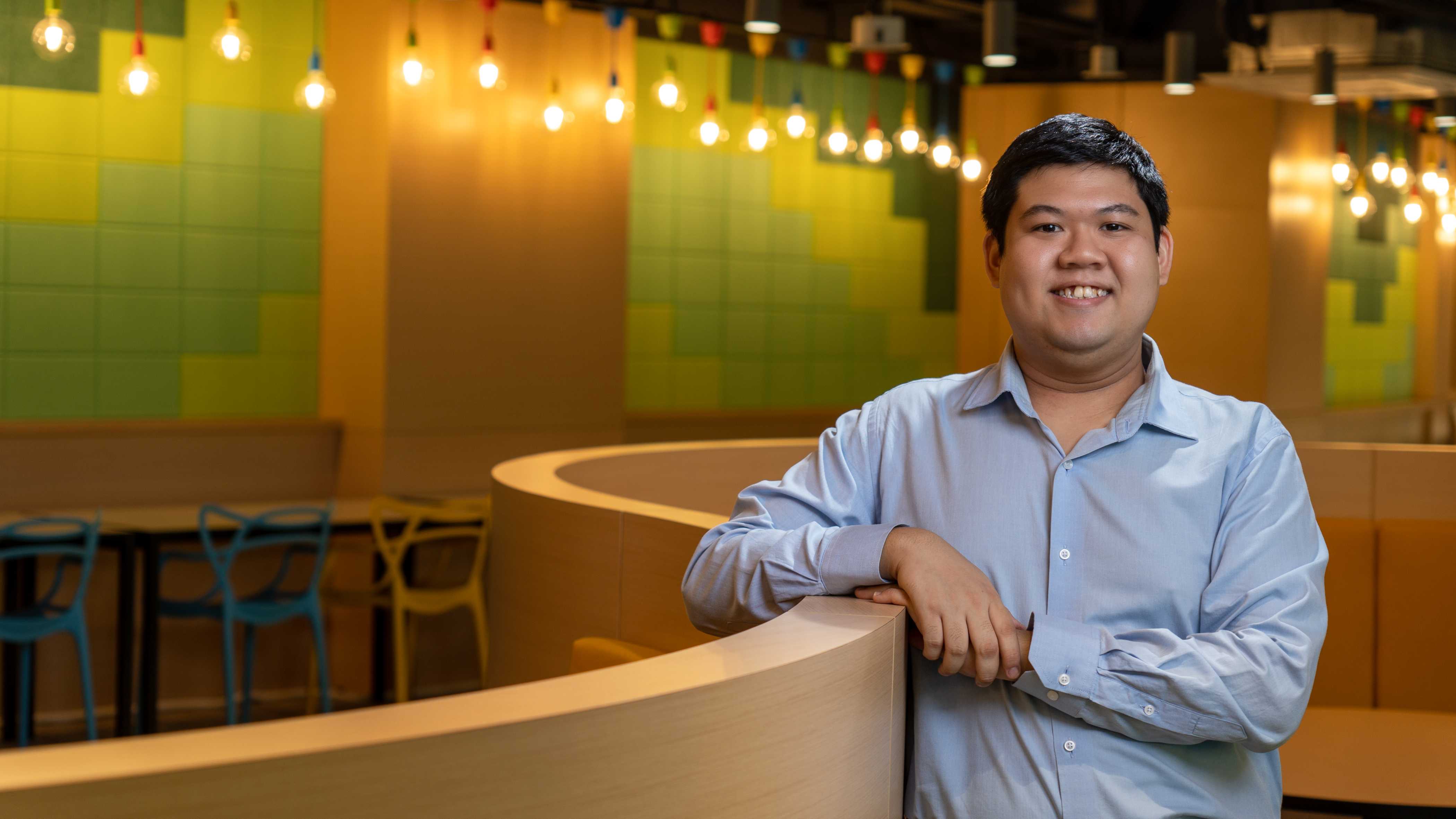
The NUS-ISS Master of Technology in Software Engineering helps tech engineer Melcolm Lee to stay relevant in the industry. The ‘stackable’ master degree at NUS-ISS also lets Melcolm Lee juggle work and studies seamlessly and helped him wield more tools at work.
While many engineers want to see the fruits of their work at use in society, Mr Melcolm Lee is one of the few who hope for the opposite.
“As much as I am proud of the defence systems I have worked on, I also hope there comes a day when we would not have to put them to use,” says the senior engineer of five years at the Defence Science and Technology Agency (DSTA).
DSTA is a technology organisation that drives innovation and delivers advanced capabilities to the Singapore Armed Forces, for which Mr Lee helps develop command, control and communications systems, and deliver development, security, and operations capabilities that enhance situational awareness, decision making and operational effectiveness.
Beyond defence, the 28-year-old hopes the tech solutions his team creates for other government agencies, such as Covid-19 systems, helps Singaporeans. “People depend on these systems to make their work more efficient,” he says.
'I need to continuously improve'.
Mr Lee, who studied computer science as an undergraduate, has just completed his coursework for a part-time Master of Technology in Software Engineering from the Institute of Systems Science, NUS (NUS-ISS), and is awaiting his graduation in July.
Getting a master's degree was a personal goal he had conceived since attending NUS-ISS courses for DSTA.
“If I want to stay relevant in the tech industry, I need to continuously improve,” he explains. “I found the school offered a MTech programme, looked into the concepts they were teaching as part of the programme, and found some of the modules very useful to my work.”
Among these are cybersecurity, cloud native architecture, and Internet of Things. The latter two topics are Mr Lee’s personal favourites – he has even rigged an automated setup at home where the lights turn off when he leaves.
“I like playing with the possibilities of what can be created when we harness different technologies,” he says, “And it’s where the industry is moving towards.”
At work, he is also tackling cloud-related projects, where his enhanced knowledge can be applied. For example, with new projects, DSTA engineers must design cloud architecture . “I can now better see how to apply the concepts I learned,” Mr Lee says.
Thanks to this enhanced familiarity with tech concepts and stronger knowledge base, he can contribute even more effectively at work and now feels more confident.
“It is a good feeling to have the technical know-how that allows me to better propose solutions,” says Mr Lee. “Taking a Master degree is not only about the knowledge, but the kind of thinking that they train you in.”
It’s also thanks to the flexibility of the NUS-ISS programme that Mr Lee was able to realise his dream of further education.
As lessons for the ‘stackable’ programme are held on weekends, he could balance studies and work for two years by tackling his coursework on weekday nights.
He also adjusted his study load to match the demands of his job. Obtaining a master's degree from NUS-ISS requires participants to complete a capstone project and three ‘Graduate Certificates’, which operate similar to subject modules and require examinations.
Participants can decide when to take these Graduate Certificates. “The majority of the coursework was manageable. If my workload was high, I could push back the start date for the next Graduate Certificate if needed,” says Mr Lee, who also appreciates the understanding and support of his colleagues during his studies.
But it’s all in a day’s work for the tech-lover, who has always been motivated to learn new things in his pursuit of self-improvement. He even built his own custom computer in secondary school for fun, going shopping at Sim Lim Square for parts.
“I always want to take the time to advance my knowledge, and see how digital tools can improve people’s lives,” says Mr Lee.
“Any form of future-proofing is a good idea to stay relevant.”
For more information on the NUS Master of Technology in Software Engineering, visit here. To find out more about our stackable programme visit here.
Article was written by Rachel Chia and first appeared in the The Straits Times here.